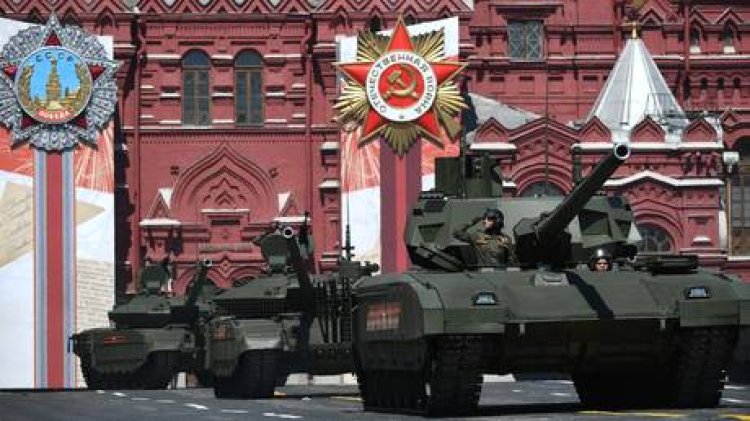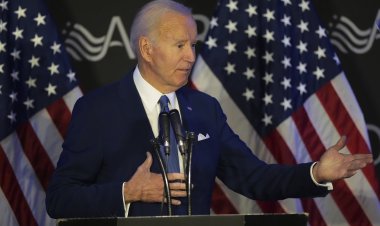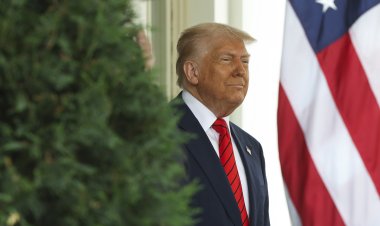Fyodor Lukyanov: Western Actions Are Eroding the 1945 Framework
<b>Why the Cracks in the World War II Settlement Threaten Global Stability</b> Eighty years is a significant passage of time, during which the world evolves in ways that can make historical events feel distant and even legendary. However, the...

Eighty years is a significant passage of time, during which the world evolves in ways that can make historical events feel distant and even legendary. However, the legacy of World War II continues to resonate, shaping global dynamics and relations even as it transforms. The war established a political framework that many believed would endure, but we now find ourselves in a rapidly changing world where the lessons of the past are being reassessed.
The outcome of the war, marked by the defeat of Nazism, fundamentally shaped the modern geopolitical landscape. This conflict was viewed as a heroic struggle, a battle against a manifestly aggressive and criminal regime that brought together nations with divergent ideologies. The Allied powers, despite their historical divisions, were compelled to unite in the face of an existential threat. Their alliance, born not out of altruism but necessity, temporarily bridged deep-rooted ideological gaps, contributing to the resilience of the post-war order.
This order survived the challenges of the Cold War and persisted into the early 21st century, even amid significant shifts in the global balance of power. Its cohesion was bolstered by a shared moral narrative — the war was perceived as a confrontation with absolute evil, a moment when the Allies' ideological differences momentarily faded in favor of a unified cause. Milestones like the Nuremberg Trials lent moral legitimacy to this framework.
However, as we move deeper into the 21st century, the collective understanding of the war and its implications is beginning to weaken. This decline in the shared narrative threatens to destabilize the global order that emerged from it.
One vital factor contributing to this fragmentation is the evolving perspective within Europe itself. In the post-Cold War landscape, Eastern European nations that have long expressed their dual suffering under both Nazi and Soviet regimes are pushing a revisionist view of the war. They increasingly position themselves as victims of "two totalitarianisms," aligning the Soviet Union with Nazi Germany as co-perpetrators of wartime atrocities. This shift undermines the previously established consensus that placed the Holocaust at the heart of the conflict and acknowledged the complicity of European nations in its occurring.
The rise of Eastern European viewpoints has had notable repercussions, allowing Western European countries to subtly shift their own perceptions of wartime guilt, redistributing blame and altering collective memory. This dilution of historical accountability is eroding the political and moral foundations that were established in 1945. Ironically, despite being framed as an appeal for historical “balance,” this revisionism undermines the very liberal world order that Western powers profess to uphold. The United Nations, a cornerstone of that order, was built on the moral and legal principles laid out by the Allies’ victory — a victory that was significantly influenced by the Soviet Union's wartime contributions. As consensus around these historical truths dissipates, so too do the structures and norms that stemmed from them.
Additionally, a second, less obvious factor contributes to this unraveling. Over the last eight decades, the global political map has undergone a radical transformation. The end of colonialism birthed numerous new states, and today’s United Nations boasts nearly double the membership it had at its inception. While World War II undoubtedly impacted virtually every corner of the globe, many soldiers from the Global South fought under the flags of their colonial rulers. For them, the war was less about defeating fascism and more about addressing the contradictions of fighting for freedom abroad while being denied it at home.
This perspective revisits historical memory. Independence movements from colonial powers often viewed the Axis not as allies but as symbols of the weakening colonial system. Consequently, while the war retains global significance, its interpretation diversifies. In Asia, Africa, and parts of Latin America, the milestones of the 20th century are perceived differently than in the Northern Hemisphere. Though these regions do not advocate blatant historical revisionism, their narratives often diverge from the Euro-Atlantic viewpoint.
This does not diminish the war's significance; World War II remains a pivotal event in international relations. The relatively peaceful decades that followed emerged from a clear understanding that such devastation must not be repeated. A blend of legal norms, diplomatic frameworks, and nuclear deterrence supported that principle. The Cold War, while perilous, was marked by the avoidance of direct superpower confrontations, successfully preventing World War III.
Yet today, the post-war infrastructure is in a state of crisis. The institutions and agreements that once ensured stability are fraying. To avert a complete breakdown, a return to the ideological and moral consensus that once united major powers is urgently needed. This appeal is not about nostalgia; it focuses on recognizing the stakes involved and understanding why these memories matter. Without a renewed commitment to these foundational principles, no amount of military capabilities or technical solutions can guarantee enduring global stability.
Victory Day serves as a poignant reminder of the profound costs associated with peace and the perils of neglecting its foundations. As the geopolitical landscape evolves, this lesson remains crucial.
Max Fischer for TROIB News












